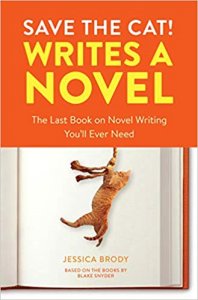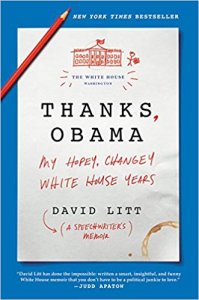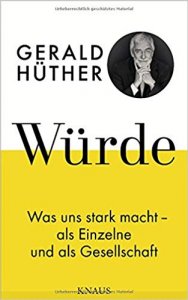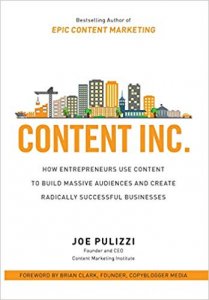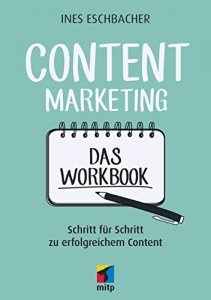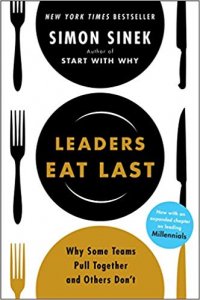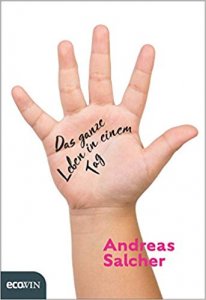Yesterday I picked up one of my notebooks, the one with the to-do lists, and went over the list of people who should get a Christmas present. It gets more difficult every year.
Do you feel the same way?
Of the two earth-shattering questions "What do you want for Christmas?" and "What do I give for Christmas?" the answer is usually only the big, fat question mark.
What could she or he need? Do you even give something that someone needs? Because as Mia (Heike Makatsch) said in "Love ... Actually", one of my favourite films by the great screenwriter and director Richard Curtis: "I don't want something I need. I want something I want - something pretty."
But in truth, everyone already has everything they need and also what they like, don't they?
Yes, we live in an over-muchification. One of the ways you see this is that many people spend money they don't have to buy things they don't need to impress people they don't like.
When it comes to gift-giving, this applies mutatis mutandis. I correct: nonsensically.
So my solution, which I have been using for many years, is to give books as gifts, because books are pure inspiration and no one can have enough of that.
Where do bookworms hide?
Who actually still reads? Who actually still reads books?
I know, fewer and fewer books are bought and many more are bought than read, but I maintain that books inspire even by their presence without being read.
Go to a real bookshop that is run and populated by bookworms and draw your attention to this phenomenon. You will experience it - again.
During the years I spent a lot of time in Los Angeles, I lived within uncharacteristically walking distance of the wonderful bookshop on the Sunset Strip. Book Soup on the Sunset Strip.

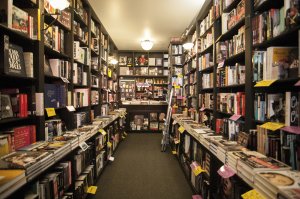
Everyone who writes knows that everyone who writes knows countless reasons not to write, as Steven Pressfield amply and illuminatingly points out in "The War of Art". The best place not to write is undoubtedly the Book Soup Bookstore. Because you spend an hour nosing among the shelves, nibbling in the books, and walk out inspired and with an irrepressible desire to finally get back to your desk and finally write again, right now. It goes without saying that the first thing you do when you get home is reorganise your CD collection and not write. As I said, Steven Pressfield knows more about this.
Something different, something better happens in a room with books than in a room without books. I swear. An Indian proverb, if I remember correctly, which I rarely do, says: "Books are the soul of a room." That's true.
I confess: When I come to someone's home and see no books, it arouses my suspicion. The contents of someone's bookshelf say a lot about them.
That's why I don't understand how people have the heart to throw books away. They probably don't have a heart. In any case, they have no books and their rooms have no soul.
A man I hold in high esteem, highly intelligent and highly sensitive, actually gives away every book he has read. He owns no book except the many he has written himself. Crazy, isn't it?
A book is a living being - especially as a gift at Christmas.
I also give away books I have read, but not the book I have read. That usually has dog-ears handmade by me, often underlining, and notes that no one - including me - can ever decipher again. They are those chapters of my biography that I did not write myself. I won't give them away.
Books are also about things, buying books is about discovery. I say this as a great friend of digital joy-givers and a self-confessed Kindle evangelist from the very beginning. In the meantime, I have become a convert in the temple of browsing.
You read a book differently, you read it better, than a digibook. It's not about practicality, but about sensuality. Books are living beings, not data sets. It's like writing by hand.
Don't search, but be found. The best books for Christmas.
My father once said, "You don't find the right place, it finds you." I think it's the same with books. Because with all due respect to the masterful Amazon algorithms, for purchase recommendations, the best discoveries are invariably those that happened in exactly the same way: a book found me. This brings us back to the bookshop, because only in these magical places can such encounters happen.
Or under the Christmas tree, when someone gives you a book that is close to their heart and therefore puts it on yours.
The best-selling book of all time is still the Bible (sorry, Harry Potter) and it says "You shall love your neighbour as yourself." So you should also give yourself something for Christmas.
The books I'm giving away for Christmas, and thus recommending to you, are for example these:
Jessica Brody: Save the Cat writes a Novel
The wonderful Blake Snyder, who died all too soon, created a great toolkit for screenwriters working in the Hollywood Studio System with the three-part book series and accompanying software entitled "Save the Cat". Films in this system are characterised, among other things, by their very clear, almost formulaic dramaturgical structure, which leans a little on the hero's journey according to Joseph Campbell and, in a broader sense, can be found everywhere, from Aristotle to Richard Curtis, just not always in this formally narrow structure.
For all those who work in marketing communication, this method, which is outlined in so-called beat sheets, is a great help for your own stories. No matter whether you are preparing a presentation or a lecture, whether you are writing a commercial or a corporate film, or whether you are writing a speech or something similar: the structure of a narrative is basically always the same. I like to use the system itself as a basis, at least for the draft of the basic structure, as a skeleton. Then I attach the story muscles.
Jessica Brody, a successful author of Young Adult novels and teacher of creative writing has now transferred this system from screenplay to novel. "Save the Cat also has a podcast.
For anyone interested in the craft of writing, or in film and literature and what lies behind them, for anyone who has their own novel in the drawer or on the list of New Year's resolutions, this book is an easy-to-read and easy-to-use instruction manual full of good writing tricks. Save the Cat, the title of the book, is one such.
David Litt: Thanks, Obama
I am often asked how to write speeches, how I prepare my speeches and what to read about them. "Thanks, Obama" is a recommendation I always give.
Long ago, when the articulacy of US presidents could fill more space than Twitter provides, one of the most remarkable orators of our time sat in the Oval Office: Barack Obama. He is not only a highly gifted orator but also a talented writer, yet he did not write his speeches himself. That was often done by David Litt, who hired on at the White House immediately after college. "Thanks Obama" is a memoir about his time as the POTUS's speechwriter, with a specialty in humour. David Litt wrote on a wide variety of topics, from healthcare to jokes at the Correspondents' Dinner . This not only provides behind-the-scenes insight in the form of reminiscences and anecdotes, but also a whole lot of useful information for anyone who wants to write speeches, lectures and presentations, and plenty of insights into the power of words.
Gerald Hüther: Dignity
The renowned brain researcher Prof. Gerald Hüther has penetrated far into the land of popular science with his books and lectures and has fascinated many people with his findings for years. If you have the opportunity to see him live, you should definitely take it.
His latest book, "Dignity", touches on storytelling in passing, but only seemingly in passing. Because in respectful communication and a responsible approach to everything that story can do, the dignity of the other person is an essential dimension that is worth protecting. This is especially true in our time, when NLP clowns, seducers and mouthlike hosebags in their tailored suits of half-silk are conquering the political stages of this world with their narratives, framings and self-optimisation campaigns disguised as politics. What is missing is empathy and dignity. The wonderful Gerald Hüther explains why and what makes us strong as individuals and as a society.
Anyone who reads this book learns and understands a lot about themselves and then sees many things that happen every day with a brighter eye. For example, how quickly one often subconsciously degrades someone to an object and how quickly this happens to oneself - especially in dealing with children and in leading teams.
Joe Pulizzi: Content Inc. and Ines Eschbacher: The Content Marketing Workbook
Here's a double pack for the content marketing-savvy story insiders, i.e. for everyone. The titles of the books speak for themselves.
Joe Pulizzi is the founder of the Content Marketing Institute, whose website has so much useful stuff that you even look up the tastelessness in the design. "Content Inc." is a great book about content marketing seen from a new, entrepreneurial perspective - content as a driver of business and entrepreneurship and not just as a communication method. A reference book with a lot of practical applicable knowledge. There's also a (finished) podcast.
View Content Inc. at amazon.com
Ines Eschbacher combines practice and knowledge in her profession every day. As a successful entrepreneur, she runs a content-oriented agency and founded the Content Campus, where there are regular workshops with the infamous Story Dude, among others. Thankfully, Ines passes on her concentrated practical knowledge in the "Content Marketing Workbook" - a bulging package with immediately applicable instructions, tools, checklists and everything else that goes with it. Unpack it, do it, enjoy it!
View the Content Marketing Workbook at amazon.com
Simon Sinek: Leaders eat last
Simon Sinek and his work around the "why", his books and his talks are rightly popular around the world and I wish that many of his listeners and readers will find his methodology helpful in their work and personal development. I have already recommended his books several times. At its core, the "why" is also the core of every story because it is about an archaic value, the life spark of every effective story.
Simon Sinek's very special concern is the development of teams and leadership culture. This is the subject of his not-so-well-known book "Leaders eat last". Good teams function when there is trust and leaders do not work with fear, cynicism and egomania. And get to the back of the queue when eating in the canteen ...
All of us, in one way or another, are always in the role of a leader, a boss, a team leader. Story is the perfect method for this, and Simon Sinek's book is also indirectly about it.
Andreas Salcher: The whole life in one day
My friend Andreas Salcher, multiple bestselling author, has once again written a wonderful book. His idea of seeing the whole of life in one day opens up unimagined possibilities: All the important issues that normally mature slowly over years, and events that string together over long periods of time, can all at once be experienced from a new perspective. Suddenly, new, important questions emerge, even if it is already afternoon, as it is for me, but the rear-view mirror is far from being the preferred window for looking into life.
Andreas Salcher writes about the discerning person who knows how to use his mind, the searching person who thinks beyond his own existence, the forgiving person who is at peace with himself and others, the curious person who never stops learning, or about the vulnerable person who is capable of love and compassion. Ultimately, he writes about how each of us can discover - again and again and anew - the meaning of our being and gives inspiration, insight and understanding for oneself and the encounter with others. A book that moves the reader and moves something in the reader and in any case sharpens the focus on empathy, the scarce commodity in our strange times of abundance.
Thank you, Andreas Salcher, also for your podcast.
Storytelling has many facets and aspects; those who rely only on linear textbook and workshop studies are falling short and groping in the dark.
Because story is a powerful, multifaceted tool that evolution has pressed into our hands and hearts. The Swiss Army knife of our world explanation, so to speak.
Every one of us is a natural born storyteller. Whoever deals with this topic will not only learn a lot about the tools, the effect and the application in professional life, but above all a lot about themselves.
Because that is the main task of stories. They help us find answers to our basic question: "Who am I?
So to all those who say: "Storytelling is not for me", I would like to recommend those words, not only in winter when it snows, that my grandmother, old Story Dudette, wrote behind the Grinch's stupid green ears: "No Story. No Glory."
P.S.: The links to Amazon are intended as a service for snooping around and for when you want to feed your Kindle right away. Every bookseller is happy about a purchase and gets every book in no time - sometimes the hand is turned around two or three times ... The reward for this: There is always a lot to discover during a visit to the bookstore, and I am also happy about relevant tips from you as a story insider - not only from the non-fiction & specialist book corner.

